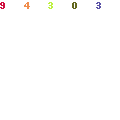To go forward, we must go back. About ten weeks back, to be exact, when I started my dear tomatoes from seed for the first time.
They lovingly grew, though a little leggy. But I didn't mind. They were my very first seed tomatoes and I was just happy they'd made it. Though some gardeners find the task of seed starting to be tedicious, I find it quite enjoyable. All you've got to do is show those little seedlings a little specific love and soon they're producing fruit to feed your family. It's a miracle!
All the more reason it's so difficult for me to be packing up to leave my dear gardens. My seedlings. My tomatoes.
But the Lord is faithful, even in trials. Turns out, our good friends Jason and Aileen will be renting our house once we leave. Which means my gardens will not be left to die - they have been given wonderful caretakers. Friends who can enjoy the bounty of what has been sown. How neat is that!
So yesterday, as much as it pained me, I spent some time out in the gardens finally planting out my tomatoes. I'd given away most of the starts, since I knew we'd be leaving, but I am thankful I at least kept a few.
Because the tomatoes grew kind of leggy (too much fish emulsion, perhaps?), I decided to try a new planting method with them called the 'trench planting method', which is exactly what it sounds like - the tomato plants are planted in a trench.

This is beneficial for a few reasons.
First, it keeps you from digging too deep of a hole. The problem with deep digging is that the further you dig down into the soil, the colder the soil becomes. Tomatoes don't like cold soil, my friend. Using the trench method, the entire plant remains only six or so inches below the soil surface where it is nice and warm. This makes them happy.
Also, trenching your tomatoes allows you to bury the first few sets of leaves on the plant. The tomatoes will eventually grow roots from these spots - thus, by trenching, you can help the tomatoes to grow deep, wide, and strong root systems - which will lead to a healthier and more productive plant. Booya.
I know it's sort of hard to make out my method amongst the wood chips, but I at least hope the photos give you a rough idea of the process. A six inch by eighteen inch trench is dug. The tomato plant is placed sideways in the trench (removed from the container, of course).
Roots and the bottom set of leaves are recovered by dirt. The top is slightly bent and secured against a trellis for support (eventually, the tomato plant will grow straight again).
For the meanwhile, I used a simple bamboo stake and twist ties for support. One of the twist ties ended up in Georgia's mouth.
Who was having such a fantastic day, as you can tell.
This is my first time using the trenching system, and obviously I won't be here to see the results, but from what I've read, it seems to be a good option for our zone (where tomatoes can easily be delayed by cold weather/soil).
Maybe Aileen will send me some pictures of the harvest.
Wahhhh!!
But onwards and upward we go.
And there is more good news: I'll still be able to start some tomatoes once we arrive in Alabama - they have a looooong growing season. I don't think we'll jump into building garden beds right away (something tells me we'll be pretty busy for awhile), but I do hope to at least grow a few goodies in some pots.
Like some tomatoes.
And kale.
And maybe peppers even!
This is a period of my life where I am very grateful for real farmers, grocery stores, and farmers markets.
And friends who will care for your tomatoes.
And Amen.




God is providential isn't He? May He continue to give you enough light to see the step you are on!
ReplyDeleteHmmmmm. I'm gonna predict that as you become the new caretakers on southern soil, those there before you have left some sort of little gem behind for you. Hopefully, a treasure.
ReplyDeletebrenda from ar